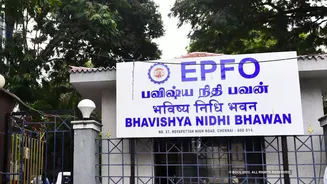Funding and Investments
Recent financial activities underscore the robust growth and investor confidence within India's e-commerce sector. Avataar.me secured $7 million from Sequoia
India, indicating faith in its potential. The collaboration between GIC and Sequoia led to a $100 million round for Razorpay, with the valuation potentially reaching $1 billion. FreshToHome is negotiating a fresh funding of $130 million. Pepper Content secured $4.2 million in funding led by Lightspeed India, while WeKan aims to incubate and fund 20 Indian startups. These investments suggest a willingness to support startups in the industry, reflecting the anticipation of high returns in the future.
Market Players' Strategies
Major e-commerce players are actively adjusting their strategies. The article highlights that online brands are seeing greater success by emphasizing their own channels and applications compared to platforms like Flipkart and Amazon. Tata Group is evaluating merger and acquisition opportunities to expand its e-commerce business. Flipkart and Walmart delivered an additional $30 million to Ninjacart, showcasing ongoing investment in delivery infrastructure. As the festive season approaches, policies to enhance e-gifting options are also being developed, indicating a focus on catering to evolving consumer preferences.
Changing Consumer Behavior
Consumer behavior is significantly influenced by current events and technological advancements. The pandemic has further fueled online shopping. With the lockdown, a surge in online spying and stalking apps was observed, raising concerns about user privacy. The growing popularity of e-commerce has led to a shift in consumer habits, with an increasing number of individuals now accustomed to online purchasing. The adaptation to online platforms by both businesses and consumers is a notable shift, which has resulted in the rapid growth of the e-commerce sector in India.
Impact of Covid-19
The Covid-19 pandemic has played a pivotal role in the e-commerce sector's growth. The pandemic’s effect has included accelerated adoption of online shopping and investment into the sector. Even though the pandemic presented several challenges, the dedication shown by Flipkart and Amazon's staff, who were busy preparing for major sale days, showed resilience. Furthermore, the push for digital solutions and the necessity for contactless transactions have aided the expansion of e-commerce across various segments.













